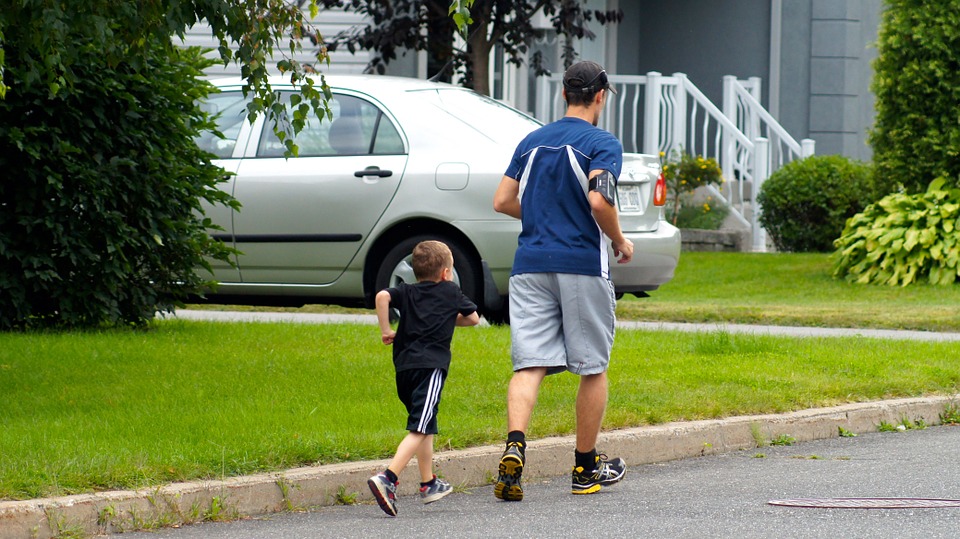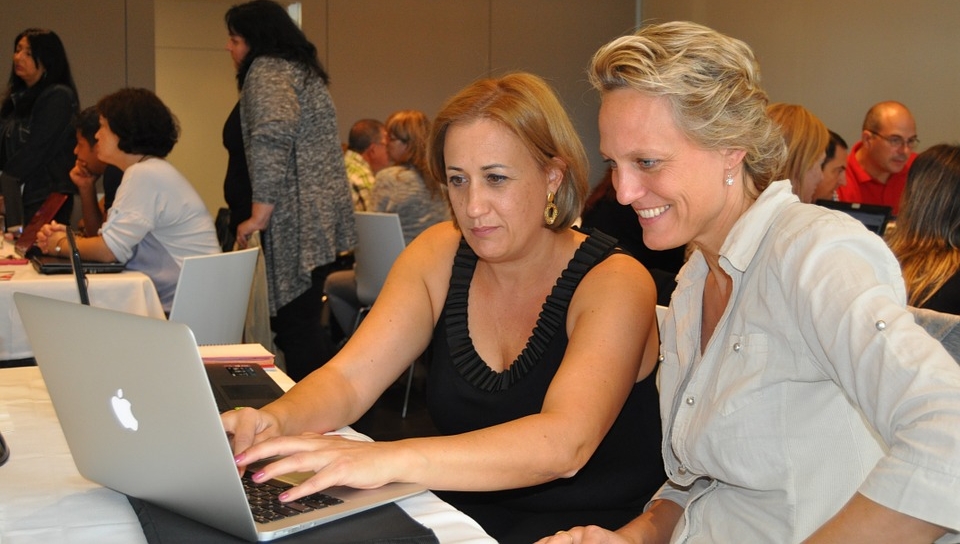It touches everyone, some more, some less. Here are some tips and tricks for dealing with fear.
The Problem
Most of us know that regular exercise and balanced nutrition are keys to increasing our wellbeing and making us more stress and fear resistant. If only we would put our knowledge into practice! Instead, we often let ourselves get overwhelmed by our many duties and responsibilities and put our health on a back burner for later. It’s no wonder so much fear, stress and depression result, impacting and infecting increasing numbers of individuals.
It is interesting to note that fear is often associated with the future, depression has its roots in the past and stress is especially produced in the present. Are there solutions to be had that don’t require medications?
A Case Study
After a tough day at work, John made his way home through extremely trying traffic. Arriving home after dark, he rushed into the house and greeted his wife hastily on his way to the shower. His two children were playing in the living room, but John had no time for them. He was hungry and looking forward to dinner.
While he was eating, his wife, Bea, was fidgeting. "What’s up?" he asked a bit impatiently. "Your mom is worried and would like you to visit her some time.” "I can’t. I have bigger problems to deal with right now. My boss blew up today!" "Can’t you think of somebody besides yourself? And what about your children? They have been looking forward to spending time with you this evening!" "Nag, nag, nag! You don’t work! So you have time for them!" Both parties were losers in that exchange.
Little Yolanda entered the room and gave her daddy an envelope. "Can’t you see I’m busy talking to Mommy?" John stuck the envelope in his pocket and Yolanda began to cry. Her mother started to stick up for her and John escaped to his room knowing he was in a losing fight. He had lost control of his emotions.
While he was getting undressed, he suddenly had the envelope in his hand. Yolanda had drawn him a picture and had written, “I love you, Daddy,” with a heart next to it for emphasis. John’s stomach cramped, realizing he had made a terrible mistake.
The question that crystalizes out of this example is: What is the most important thing in life? Our fears often lead us into dead-ends and destructive situations in life that we would never choose ourselves, if given a rational moment to think it through. Therefore, it is imperative that we look our fears in the eye and work them out. Right?
Children are usually the victims. They have too little experience and intellect to understand and process all the difficult situations they experience. No wonder so many find themselves struggling for emotional survival! The challenge for us as adults is to find ways to help these children break the cycle of fear.
Thoughts are Powerful
As you may read in the blogs on toxic thoughts (TOX1 - TOX2), our thoughts are a cofactor to health. Those who can control and regulate their own thoughts are at a distinct emotional advantage. That, however, is easier said than done.
A short refresher: Our thoughts can influence our immune systems, which in turn influence our probability of getting cancer, lower our life expectancy, increase the time needed to recuperate from sicknesses, depress our moods and, consequently, decrease our social competence.
People who make positive thinking a habit get more out of life. Those who carry lovely pictures of the past around with them, who see difficulties as a part of a bigger, nicer picture, and who can speak well of yesteryear definitely do their approximately 70 trillion cells a huge favor. A similar advantage is produced when the future is contemplated with happy confidence.
The most important point to consider undoubtedly revolves around how we think about ourselves. If we regularly compare ourselves with great personalities (stars in the media), we will always lose. We need to learn to value our own talents and skills, but neither these nor our achievements can be the basis for our self-worth, or we will soon be in grave danger.
Of course, nobody can ALWAYS think ONLY positive thoughts. The death of a loved one is inevitably followed by a period of mourning. People of faith have a distinct advantage here: their time for grieving is normally shortened and eased by the hope that carries their thoughts beyond the grave.
The human brain is absolutely sensational! Each person’s entire life is stored within those three crucial pounds of gray matter. So it is beneficial to understand how it works, or better, how it can be influenced for the good. What is the role of the frontal lobe (BLOG)? The amygdala? How can my lifestyle improve (or damage) brain function? These are important questions, but they seem more important to me, now that I know some answers.
Fear
Fear is a constant companion in life. It’s something like a “gift of creation”. We have also received tools to deal constructively with fear: experience, reason, self-awareness and especially love, which is the opposite of fear.
Caroline
When Caroline was five years old, her father left her and her mother for a younger woman. One of the consequences of this move was that her mother had to get a job, and Caroline had to go to a day care center. It was not easy for her mom. She often complained about her meager financial circumstances. Having already lost her daddy, Caroline worried that her mother could also leave her (fear of loss) (Verlustangst) and her fear of the future grew with her awareness of life. She began to expect tragedy. She developed a negative pattern of thought that would surely accompany her into her adult life.
There are diverse kinds and shades of fear. From general phobias to panic attacks to fear of loss to posttraumatic stress disorder (PTSD), their roots can all usually be traced back to some devastating
Causes of Fear
Nature presents us with some beautiful examples of how animals overcome fear. It’s quite amazing when you consider the size of their frontal lobes as compared to ours!
Many fears are transmitted to children through their parents. Fear of failure, feelings of guilt, irrational fear (like of mice) and personal instability because of feelings of low self-worth can all produce huge deficiencies in children. People generally have little knowledge of their own fears and coping skills.
The main cause for all fear, as I see it, is a lack or loss of love. Love is the best medicine for fear. Where love is lacking, fear grows. Where love, security and appreciation are put into practice, fear must retreat and diminish.
That is easy to say, but where can you get love without stealing it? (BLOG) People who have a hard time dealing with life are often tempted to develop coping strategies such as power, pleasure and/or pride. When you get right down to it, these are all really just substitutes for love. The choices of counterfeits available today are as numerous as the stars.
Dealing with Fear
The symptoms of a fear disorder are often first seen after a stressful event. At those times, it would be advantageous to know how to best deal with them. Here are a few suggestions:
> Share Your Troubles
Having someone you can talk to in times of trouble is truly a gift. The investments you make in your family, friends and community will prove their value in times like these.
> Relax
Every person has developed his or her own way of relaxing. For some, it’s a walk by a river, for others, it’s listening to music, hanging around, reading or painting pictures. Find your way, and do it.
> Breathe Deeply
When people are afraid, they breathe shallowly. Breathing IN and OUT slowly, deeply and thoughtfully several times can bring balance back into a difficult moment. Afterwards, it will be easier to think clearly and rationally.
> Eat Healthy
But what is healthy? There are HUGE discrepancies in what is promoted as healthy nowadays! Let me summarize my humble opinion in a nutshell: The more natural, the healthier. Please check out the blog called NEWSTART .
> Self-Help Groups
In many towns there are self-help groups where you can share your troubles with and learn from others. These are especially helpful if you don’t have friends or family who understand your issues.
> CBT: Thought Stopping
Cognitive Behavioral Therapy is a good method for many for managing fear and intrusive negative thoughts. As soon as you recognize an undesirable thought, consciously STOP it by turning your thoughts to something positive and desirable. Refuse to dwell on toxic thoughts.
Other options for those who need extra help include asking a doctor for assistance. Pharmacological solutions are sometimes unavoidable.
> Our Creator Can Help
o Style Your Life: Life is a challenge. Causality, or the question of why things are the way they are, along with questions about our vulnerability, our own and that of our relationships, occupy our thoughts day by day. In order to arrive at the wisest of conclusions, it would be beneficial to ask our Creator these questions personally. He has all the answers. For this reason, many Christians read the Bible. In it they find sensational, deep, psychological bits of wisdom that make life worth living. Living life with HIS values leads to more quality of life and love. Are you interested in an example? Ephesians 5:28 says: He that loves his wife loves himself! Think about that for a moment. What could it mean?
o Stay in Touch: For example, Christians go to church regularly. They think and feel and act in each other’s best interest, which strengthens their feeling of community. Together they are strong!
o Contact the King: Please allow me to make one of my favorite suggestions: Take a moment, three times a day in a quiet place, to get in touch with God. It is not important that you feel like it. Just make a decision to do it and don’t let anything distract you from it. Tell Him what’s on your heart. If you are attentive and willing to learn, you will experience how His voice speaks with you through your conscience.
Many people pray only in a dire emergency, when there’s no other way out. That’s sad. We could have so much more. God invites us to come directly to Him. He promises to reward us when we do. In the Bible, that’s called a blessing. That’s the best key.





























